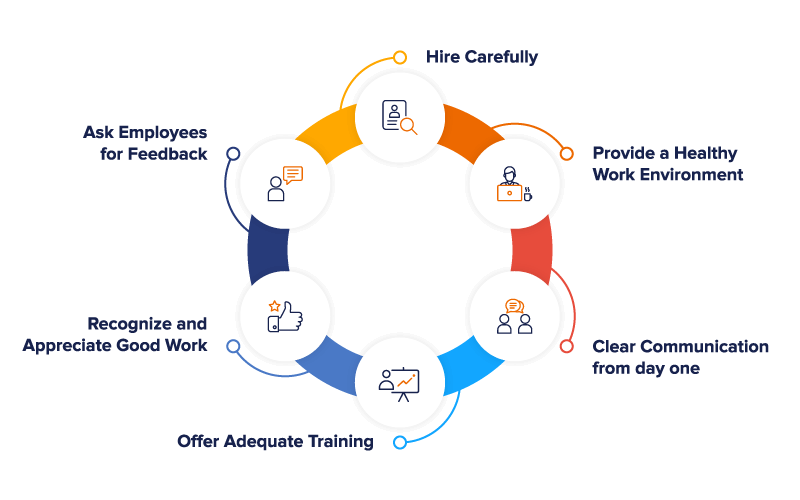
Strategic Approaches for Effective Talent Retention
In the dynamic landscape of the modern workplace, retaining top talent is a paramount challenge for businesses. Implementing robust talent retention strategies is crucial to nurture a loyal and productive workforce.
Understanding the Importance of Talent Retention
Talent retention is not just about preventing employee turnover; it’s about cultivating an environment where employees feel valued and motivated to contribute their best. The cost of losing skilled employees extends beyond recruitment expenses, encompassing lost productivity, disrupted workflows, and potential damage to company morale.
Fostering a Positive Work Culture
A positive work culture is foundational to talent retention. Employees thrive in environments where their contributions are recognized and where there is a sense of belonging. Creating a positive culture involves effective communication, transparent leadership, and initiatives that prioritize employee well-being.
Investing in Professional Development
Employees value opportunities for growth and development. By investing in training programs, workshops, and educational opportunities, businesses not only enhance the skill set of their workforce but also signal a commitment to their employees’ long-term success. This, in turn, fosters loyalty and reduces the likelihood of talent seeking growth elsewhere.
Flexible Work Arrangements and Work-Life Balance
The modern workforce increasingly values flexibility in work arrangements. Offering options like remote work, flexible hours, or compressed workweeks can significantly contribute to employee satisfaction. Striking a balance between professional and personal life is essential for retaining top talent and preventing burnout.
Competitive Compensation and Benefits
While non-monetary factors play a significant role, competitive compensation and benefits remain crucial in talent retention. Regularly reviewing salary structures, offering performance-based incentives, and providing comprehensive benefits packages ensure that employees feel adequately rewarded for their contributions.
Recognition and Appreciation Programs
Recognition is a powerful motivator. Implementing employee recognition programs, both formal and informal, acknowledges individual and team achievements. Recognition fosters a sense of pride and accomplishment, reinforcing the idea that employees are valued contributors to the organization’s success.
Effective Communication Channels
Open and transparent communication builds trust within an organization. Establishing clear communication channels ensures that employees are informed about company goals, changes, and opportunities. This transparency creates a sense of inclusion and empowers employees to align their efforts with the organization’s overall objectives.
Linking Success to Talent Retention Strategies
Explore comprehensive solutions and success stories related to Talent Retention Strategies at Talent Retention Strategies. Learn how businesses are implementing effective strategies to retain top talent, drive productivity, and create a thriving workplace.
In conclusion, talent retention is a multifaceted challenge that requires a strategic and holistic approach. By fostering a positive work culture, investing in professional development, offering flexibility, and implementing recognition programs, businesses can create an environment where employees are motivated to stay and contribute to long-term success. In the competitive landscape of talent acquisition, effective retention strategies are indispensable for building a resilient and high-performing workforce.



